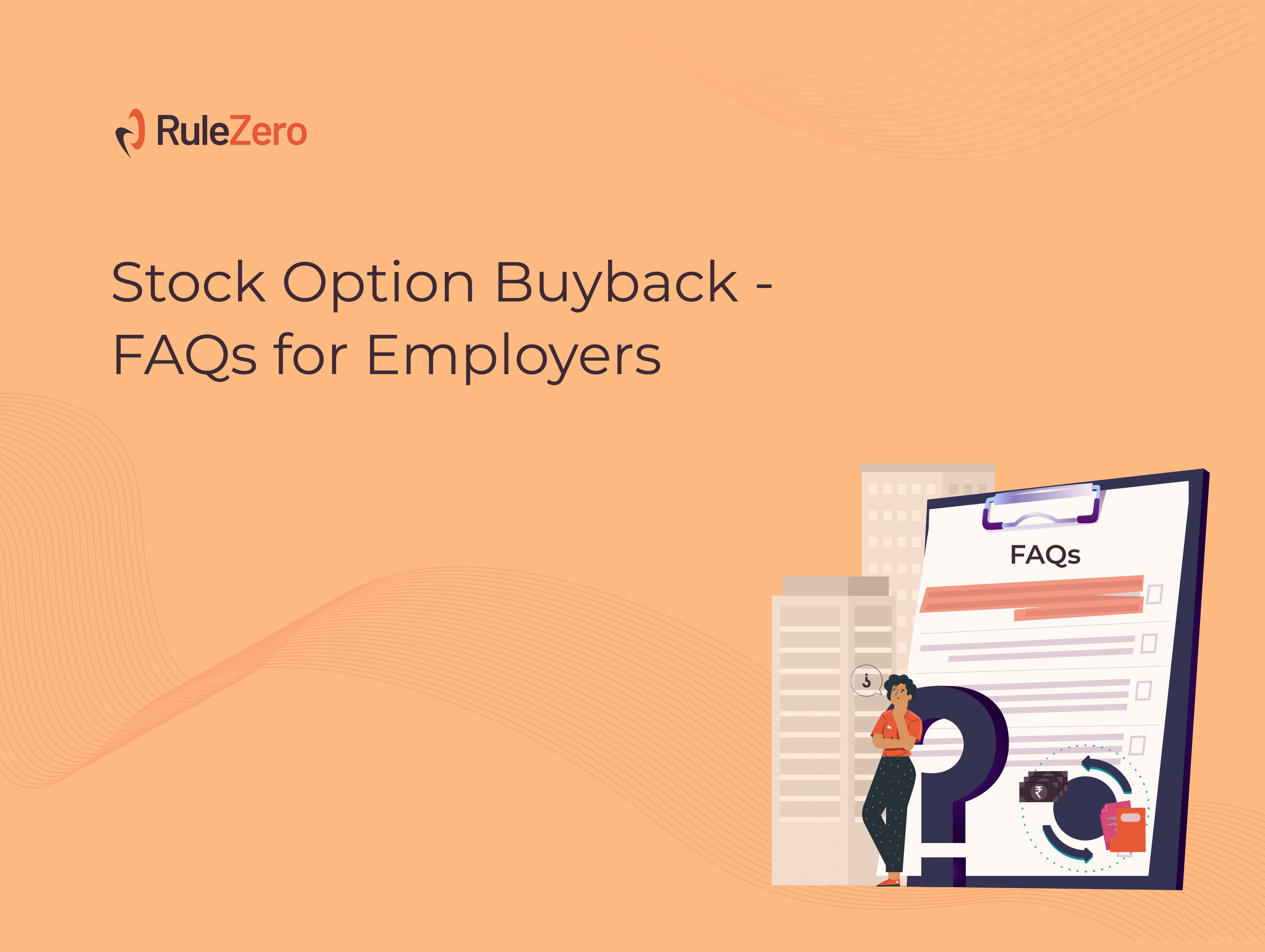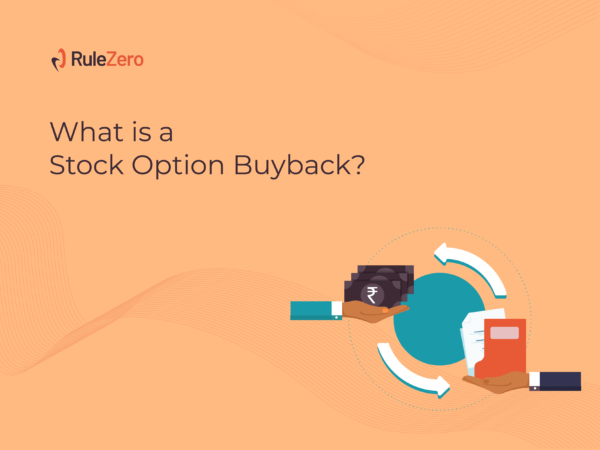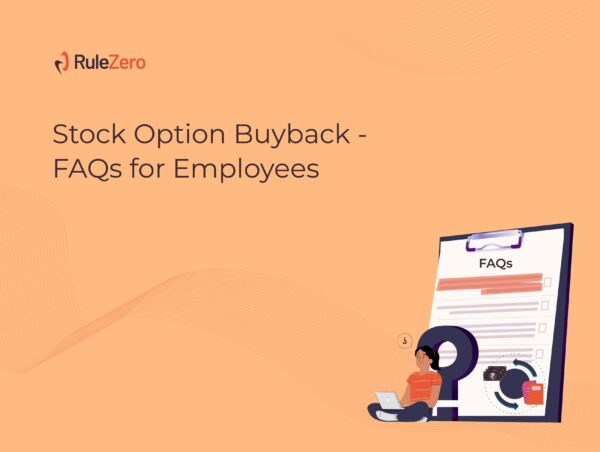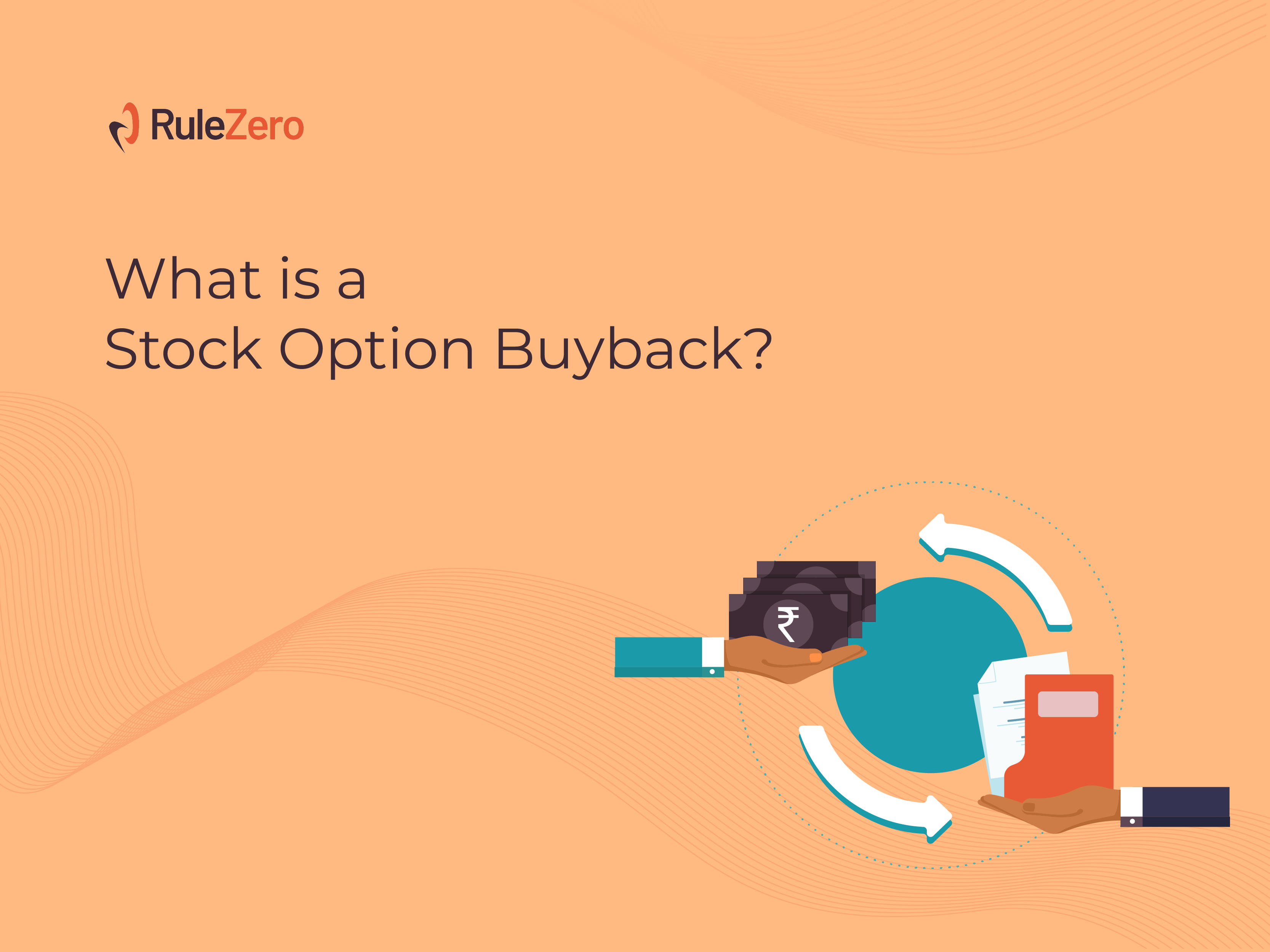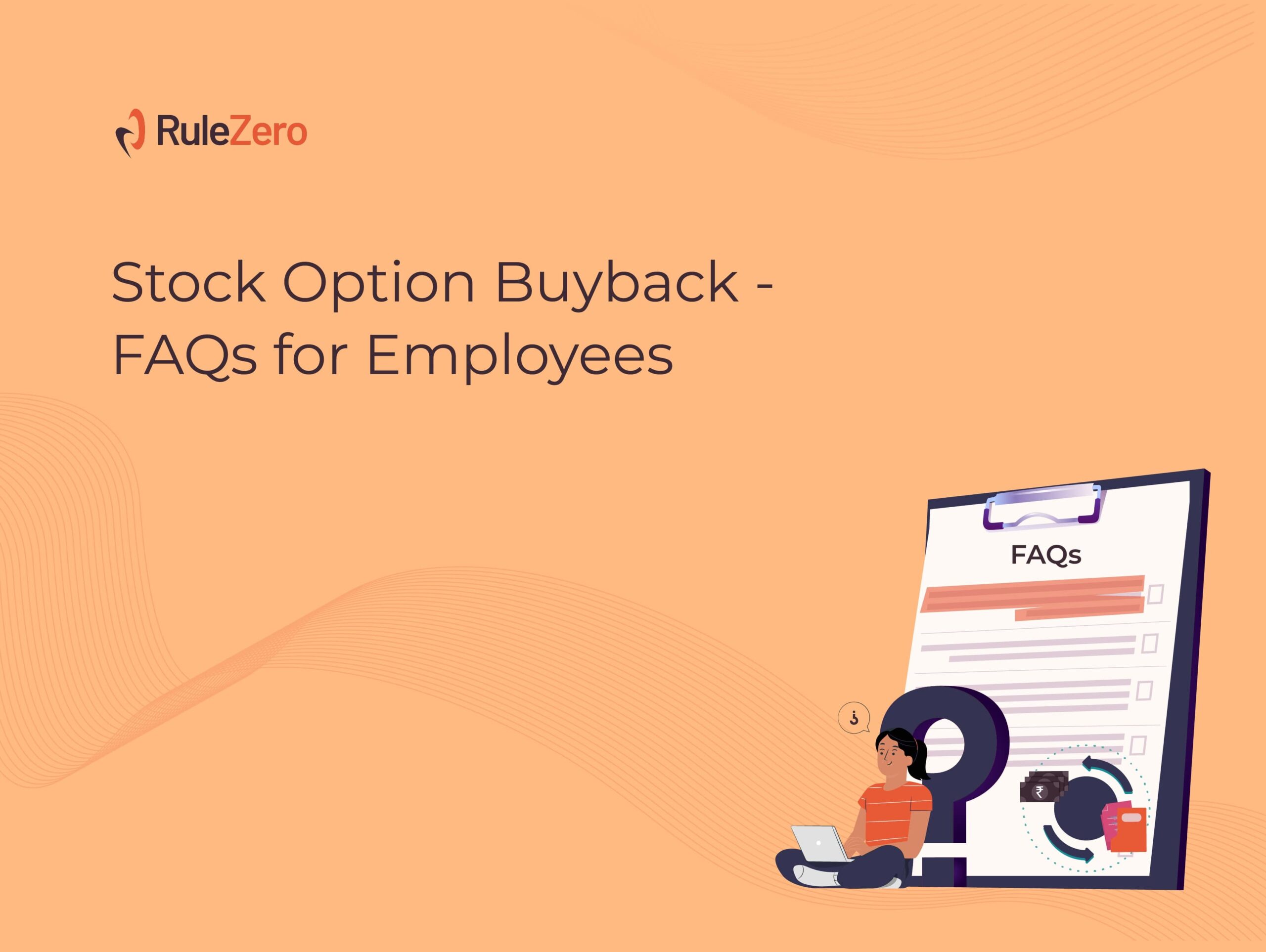Administration of stock options can be a complex process. Since buyback of options is one of the modes through which liquidity is provided to employees, companies must understand the concept and its execution well to avoid any pitfalls when conducting the buyback.
To help companies with this, we have listed ten frequently asked questions on option buyback.
1. How is a buyback of options different from a buyback of shares?
- A buyback of options occurs when vested options are bought back from employees and added back to the company’s stock option pool. A share buyback is when shares are bought back from a company’s shareholders.
- Unlike a buyback of shares where only 25% of the paid-up capital can be bought back, buyback of options has no conditions. All vested options can be bought back from employees.
- After a share buyback is completed, a minimum of six months must pass before a company initiates the next share buyback. Buyback of options can be undertaken with any frequency as long as companies have cash reserves.
2. Do all stock option plans have a clause on buyback?
A standard stock option plan typically contains an enabling provision for companies to undertake a buyback of stock options if needed. Since the entire administration of options is based on the terms of a stock option plan, without a specific buyback option clause, a company may not be able to initiate option buyback from employees pursuant to surrender/ cancellation of vested options.
3. What triggers the buyback of options?
Some situations that can trigger a buyback of options are when companies:
- Have surplus cash reserves
- Have a commercial understanding with their investors that part of the funding amount in a particular financing round will be utilized to provide liquidity to employees
- Are getting ready to list their shares (IPO)
- Are being acquired.
4. Can only vested options be bought back / liquidated? What happens to unvested options?
Yes, only vested options can be bought back. Companies may allow acceleration of vesting for the purpose of buyback, although this is rare. Acceleration typically occurs prior to a corporate restructuring event, such as an acquisition or IPO.
5. How is the option pool adjusted once the options are bought back?
The option pool is an aggregate of allocated and unallocated stock. As options are bought back, the proportion of allocated options decreases, while the unallocated proportion increases. Overall, however, the size of the pool remains the same.
6. Can there be a compulsory buyback / cancellation of options?
Yes – in some situations. One of the most important clauses in the stock option plan is how the options are treated in scenarios involving cessation of employment. The plan lays down the treatment of vested and unvested options in such situations. Common practice is that if the separation is due to termination of employment (due to a ‘for cause’ event, like theft, embezzlement, fraud etc.), the options vested for the employee whose employment has been terminated are cancelled and added back to the stock option pool.
7. How does buyback of stock options work under an ESOP trust structure?
Under the trust structure, the company sets up a trust which holds actual shares on behalf of the employees. The trust then grants beneficial ownership to the employees once vested options are exercised. However, when option buyback is triggered, there can be two scenarios:
Scenario 1 – The vested options are exercised by employees. The trust transfers the shares to the employees. Shares are bought from the employees by incoming investors.
Scenario 2 – Company pays the employee directly for the options bought back pursuant to cancellation/ surrender of options.
8. Can employees participate in the buyback in case they do not receive an offer?
No, only employees who have received the offer can participate in the buyback.
9. Is there a dilutionary impact due to a buyback? What is the impact on the cap table?
No. Since the shareholding percentage of the shares represented in the stock option pool remains the same, the cap table is not affected.
10. Is company valuation a must to buyback options?
Yes. Options are bought back for cash at a price based on the fair market value of a company’s shares on the date of purchase. However, the option buyback price may differ depending on why the company is buying back the options. Hence it’s ideal to engage a valuer to value the company and its shares.
For more information on option buyback, refer to our blog on “Stock Option Buyback- The what, why and how”. For employee related FAQs on option buyback refer to “What you need to know about stock option buyback- as an employee“

